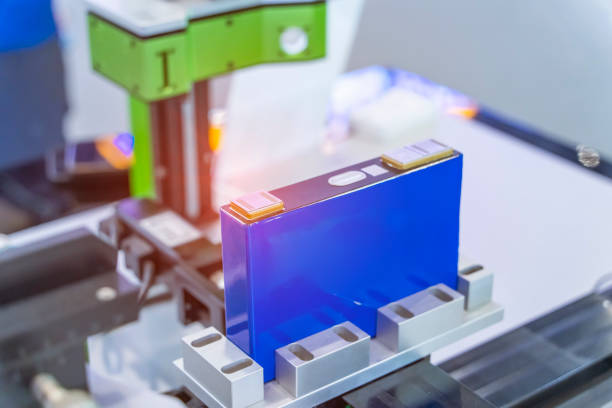News /
DOE provides $2.5 billion loan to domestic battery cell producer
2022-12-22
The U.S. Department of Energy's Loan Programs Office has made a noteworthy decision, agreeing to provide a $2.5 billion loan to Ultium Cells in order to help finance the construction of new lithium-ion battery cell producing facilities across three states: Ohio, Tennessee and Michigan. The joint venture between General Motors and LG Energy Solution will be responsible for managing battery cell production for electric vehicles.
Secretary of Energy Jennifer M. Granholm noted that this loan is anticipated to "jumpstart domestic battery cell production needed to reduce our reliance on other countries". In addition, Ultium Cells plans to invest an extra $275 million in its Spring Hills, Tenn., facility so as to up their output from 35 GWh to 50 GWh when the plant is fully operational, resulting in an additional 400 jobs.

Moreover, the company has acquired a conditional commitment for the loan to produce pouch-type cells with nickel-cobalt-manganese-aluminum (NCMA) chemistry and are designed to offer more range at less cost. As part of its environmental efforts, GM aims to eliminate all tailpipe emissions from its light-duty vehicles by 2035 and move towards carbon neutrality by 2040.
In addition, hourly workers at Ultium Cells recently voted in favor of unionizing the northeast Ohio plant near GM’s former Lordstown Assembly. This marks LPO's first closed loan specifically for battery cell manufacturing under the Advanced Technology Vehicles Manufacturing program, which has received $3 billion in appropriations from the Inflation Reduction Act and will remain accessible until Sept. 2028 at least.
Overall, DOE's new and improved programs have drawn 98 active applications for a total of over $104 billion requested loans and loan guarantees. Furthermore, the administration recently introduced the American Battery Materials Initiative with $2.8 billion in grants to construct a domestic battery mineral supply chain. All these efforts are hoped to promote electric vehicle usage so as to achieve sustainable growth and bring about lasting change.
The U.S. Department of Energy's Loan Programs Office has made a noteworthy decision, agreeing to provide a $2.5 billion loan to Ultium Cells in order to help finance the construction of new lithium-ion battery cell producing facilities across three states: Ohio, Tennessee and Michigan. The joint venture between General Motors and LG Energy Solution will be responsible for managing battery cell production for electric vehicles.
Secretary of Energy Jennifer M. Granholm noted that this loan is anticipated to "jumpstart domestic battery cell production needed to reduce our reliance on other countries". In addition, Ultium Cells plans to invest an extra $275 million in its Spring Hills, Tenn., facility so as to up their output from 35 GWh to 50 GWh when the plant is fully operational, resulting in an additional 400 jobs.

Moreover, the company has acquired a conditional commitment for the loan to produce pouch-type cells with nickel-cobalt-manganese-aluminum (NCMA) chemistry and are designed to offer more range at less cost. As part of its environmental efforts, GM aims to eliminate all tailpipe emissions from its light-duty vehicles by 2035 and move towards carbon neutrality by 2040.
In addition, hourly workers at Ultium Cells recently voted in favor of unionizing the northeast Ohio plant near GM’s former Lordstown Assembly. This marks LPO's first closed loan specifically for battery cell manufacturing under the Advanced Technology Vehicles Manufacturing program, which has received $3 billion in appropriations from the Inflation Reduction Act and will remain accessible until Sept. 2028 at least.
Overall, DOE's new and improved programs have drawn 98 active applications for a total of over $104 billion requested loans and loan guarantees. Furthermore, the administration recently introduced the American Battery Materials Initiative with $2.8 billion in grants to construct a domestic battery mineral supply chain. All these efforts are hoped to promote electric vehicle usage so as to achieve sustainable growth and bring about lasting change.